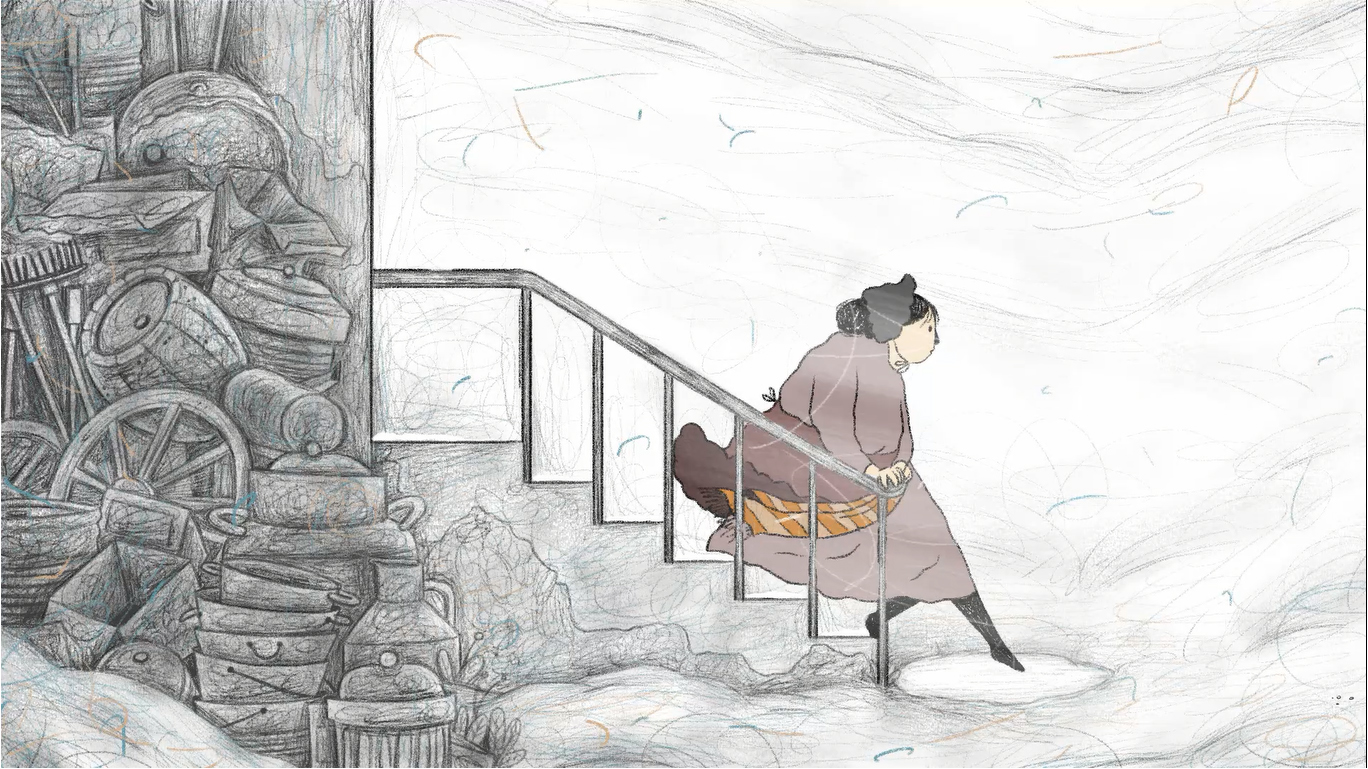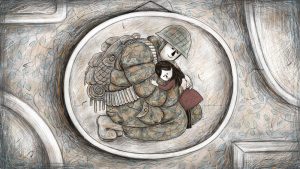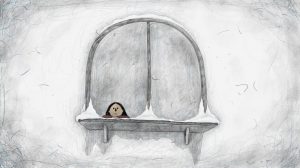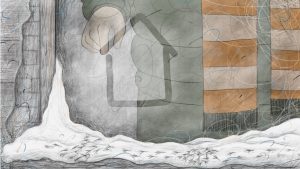Effects of War, Dementia Animated in Short Film ‘Winter Memories’

The main character, clutching her shawl, makes her way down icy stairs. (Photo courtesy of White Tree Animation Studio)
Zahra Kababian had a special bond with her father, and even though he died suddenly 10 years ago, it’s the memories they shared that keeps him alive in her heart.
It was those memories and his diagnosis of Alzheimer’s disease that inspired her animated short film, “Winter Memories,” which depicts an older woman with Alzheimer’s attempting to relive her relationship with her father and grappling with the effects of war. Her film was selected as part of the 2021 Toronto Animation Film Festival.
In her own experience, Kababian, 30, says that those she’s met who have Alzheimer’s typically remember their childhood, “but never the last second they have.” That phenomenon was used in the film in part for dramatic effect; each time the nameless main character knits a shawl, she remembers the day she made one for her father as he leaves for war. But it also connects the film to Kababian’s father.
The shawl serves as a symbol that jogs the character’s memory. Kababian and her husband, Amir Mahdi Safdari, were born and live in Iran, where the shawl has a history of tradition. Iranian mothers will give shawls typically to their husbands and children.
“It’s something that has memory,” Kababian said through her husband, who helped translate parts of a Zoom interview with Alzheimer’s News Today.
Kababian created the movie with Safdari, 26, as part of her graduation thesis for her master’s in animation at the University of Tehran. Kababian led the illustration while Safdari wrote the screenplay, directed, and edited the six-minute film. The Toronto festival showed the film on March 25, day two of their four-day online event.
Kababian’s hope is that viewers can empathize and connect with the tight-knit relationship between the main character and her father.
The story brings in bits and pieces of the two creators’ lives. Safdari’s father fought in the Iran-Iraq war, which lasted from 1980 to 1988 and is thought to have claimed the lives of around one million people. His father returned, but with lasting nerve damage from a bomb that’s stuck with him till today, at 55 years old. Safdari himself struggled with depression because of what happened to his father.
“We wanted to show the effect of war on the person who’s left,” Safdari said in the same interview.
The film opens with the older woman playing with her father and giving him a shawl she made. The image cuts back and forth between the time of her childhood and present day, and the viewer quickly spots other versions of the shawl strewn throughout her humble cabin. A wall of pictures behind her shows the memories she’s had with her father.
The scene changes, and the woman follows the child version of herself outside in the snow. The girl draws a house and stick figures of herself and her father beside it. A military jeep arrives at that moment to give her the bad news. The driver returns her father’s only remains: the shawl she gave him before he left.
The artistic style evokes a sense of old-school French animation, with the use of scribbled lines and a lower frame rate. Color mixes with black and white in the cabin of the woman, surrounded by overflowing snowbanks, creating a somber atmosphere. None of the characters have dialogue, and music mixed with moments of silence take the place of words.
Showing their film at the Toronto festival is expected to help Safdari and Kababian get funding for their next project, which will explore humankind’s relationship with nature, and continue their education to pursue doctorates in animation. Kababian finished her master’s with this project, which took two years to complete, and Safdari will finish his degree when he completes his next film.
Safdari is still in the development phase of his next film, which it will center on a girl’s relationship with a tree and how it reflects the conflicting nature humans have with the environment.
“Winter Memories” ends where it starts, with the old woman preparing to knit yet another scarf. Viewers are brought back to reality as she pours herself a fourth cup of tea. The scene shows the effects of Alzheimer’s and the memories the woman holds on to for dear life.
“Humans are always fighting with their past and stressing about tomorrow,” Safdari said. “We want to focus on the past, on the memories.”









